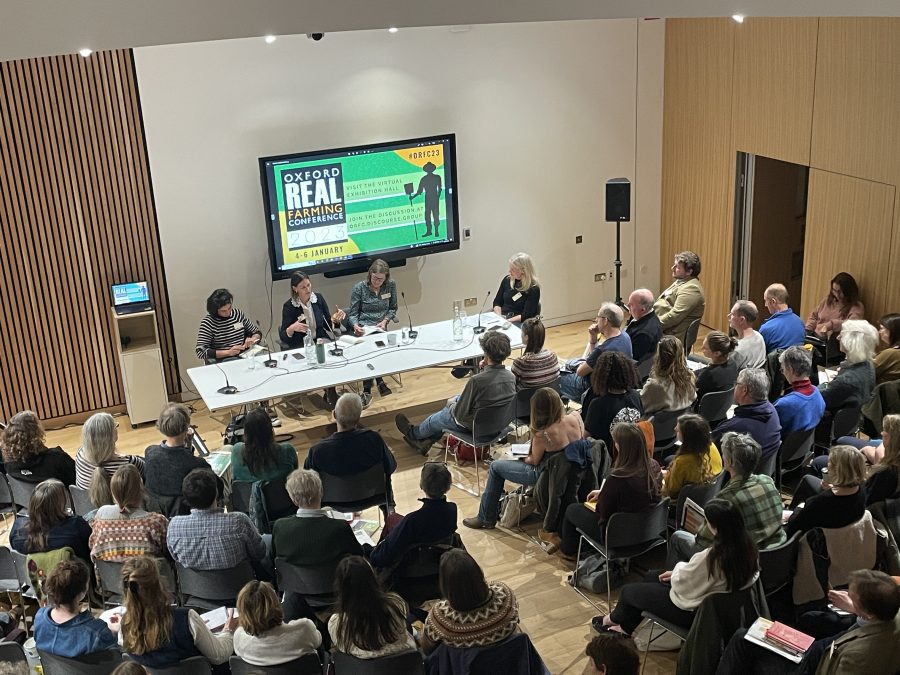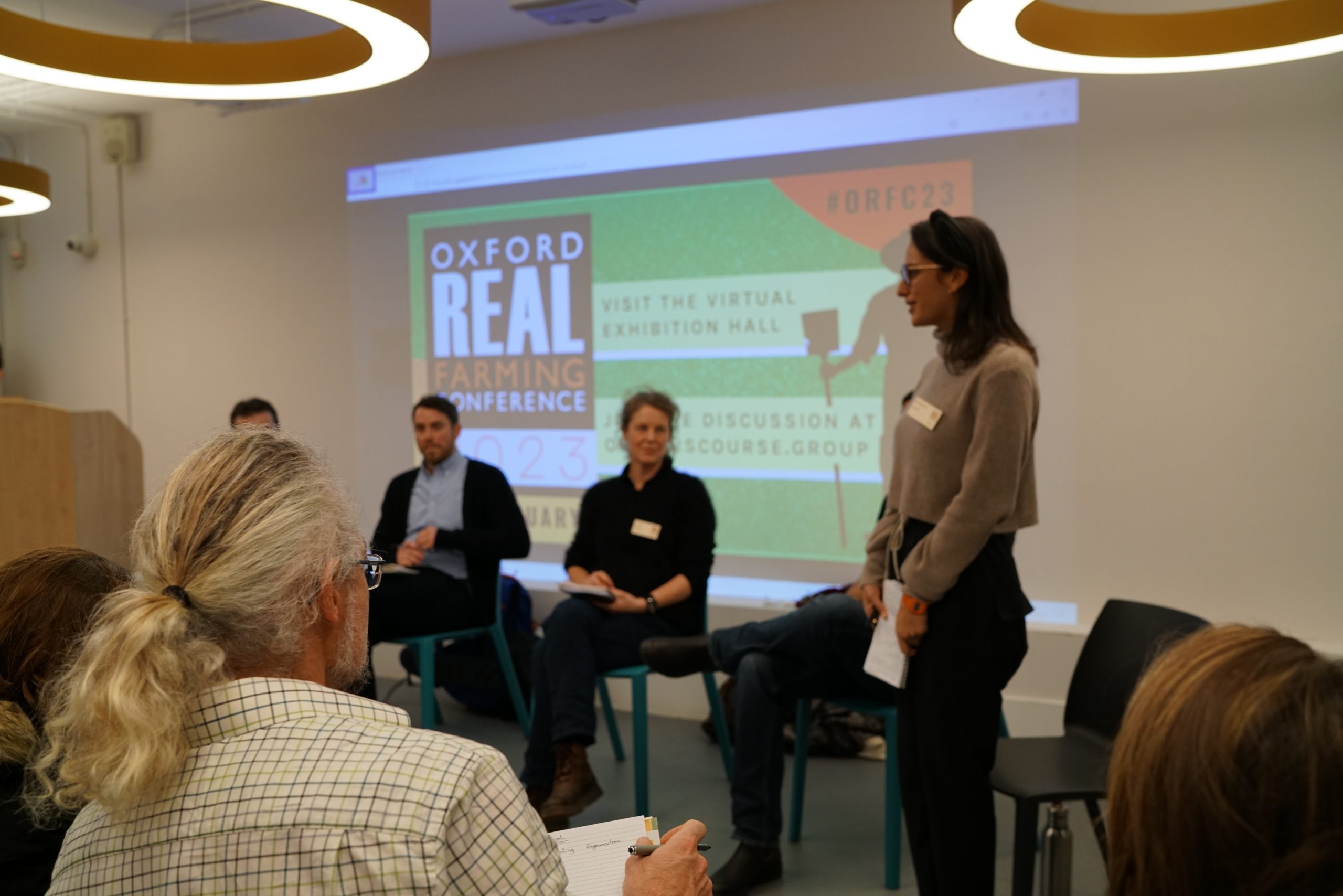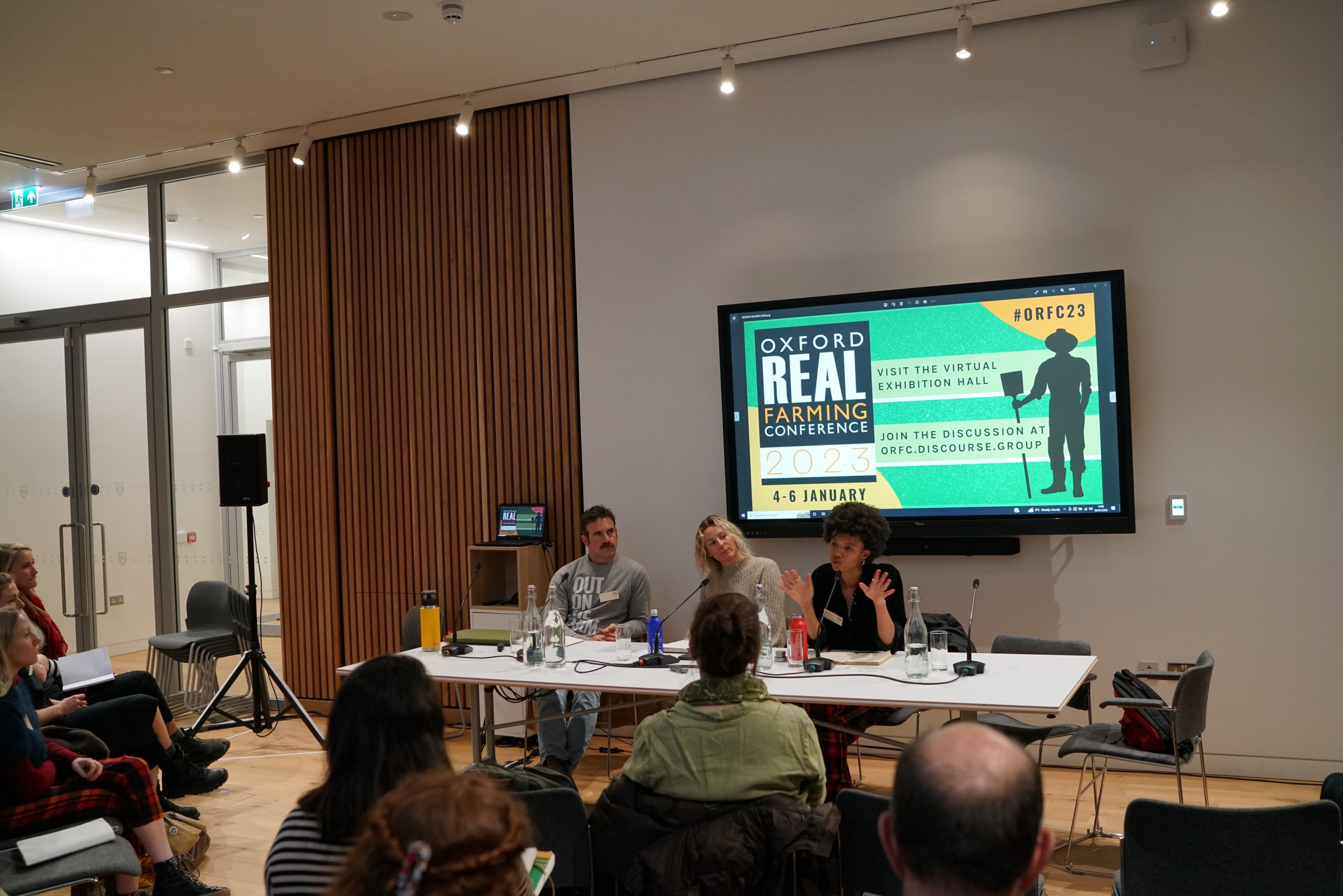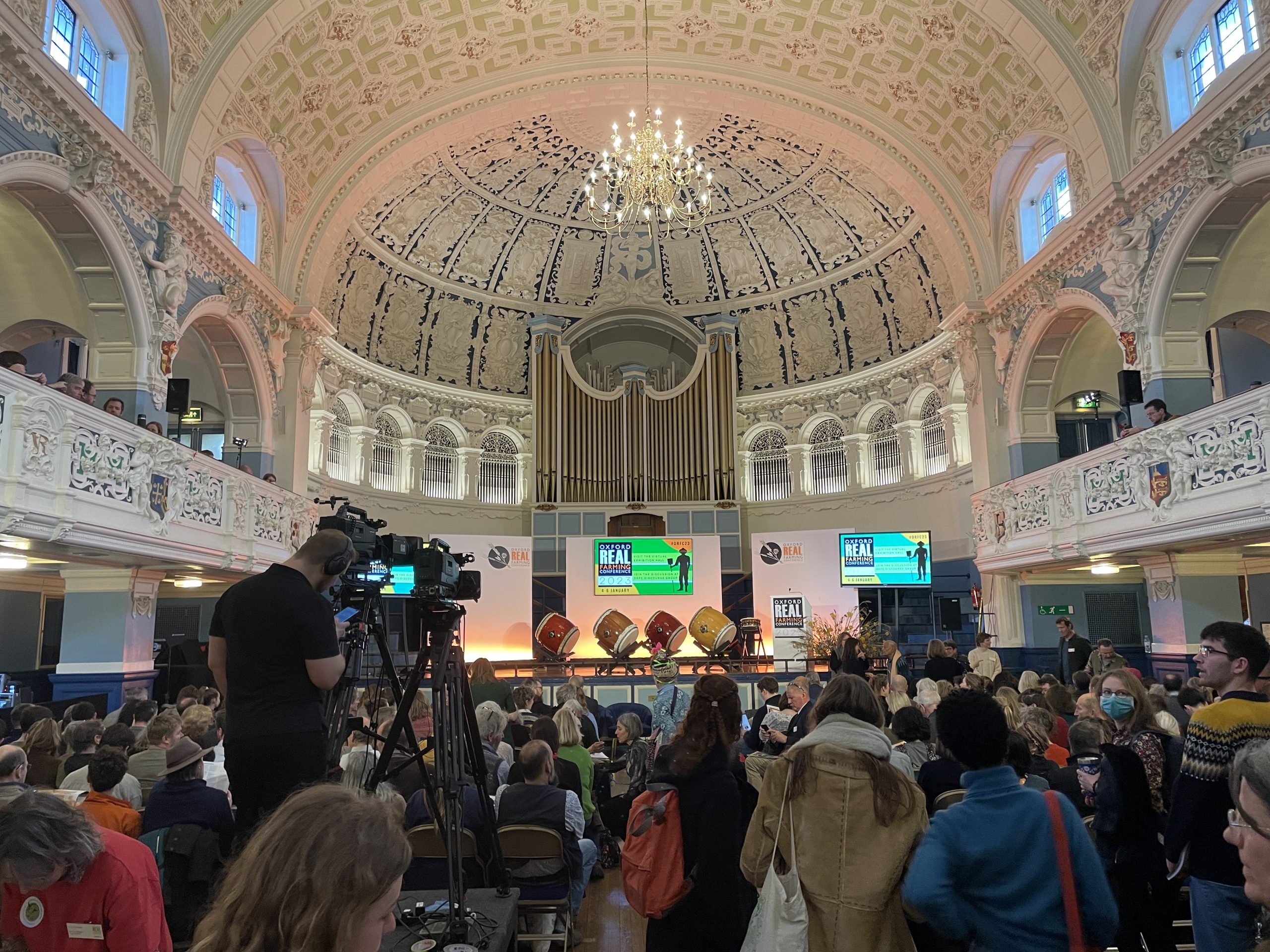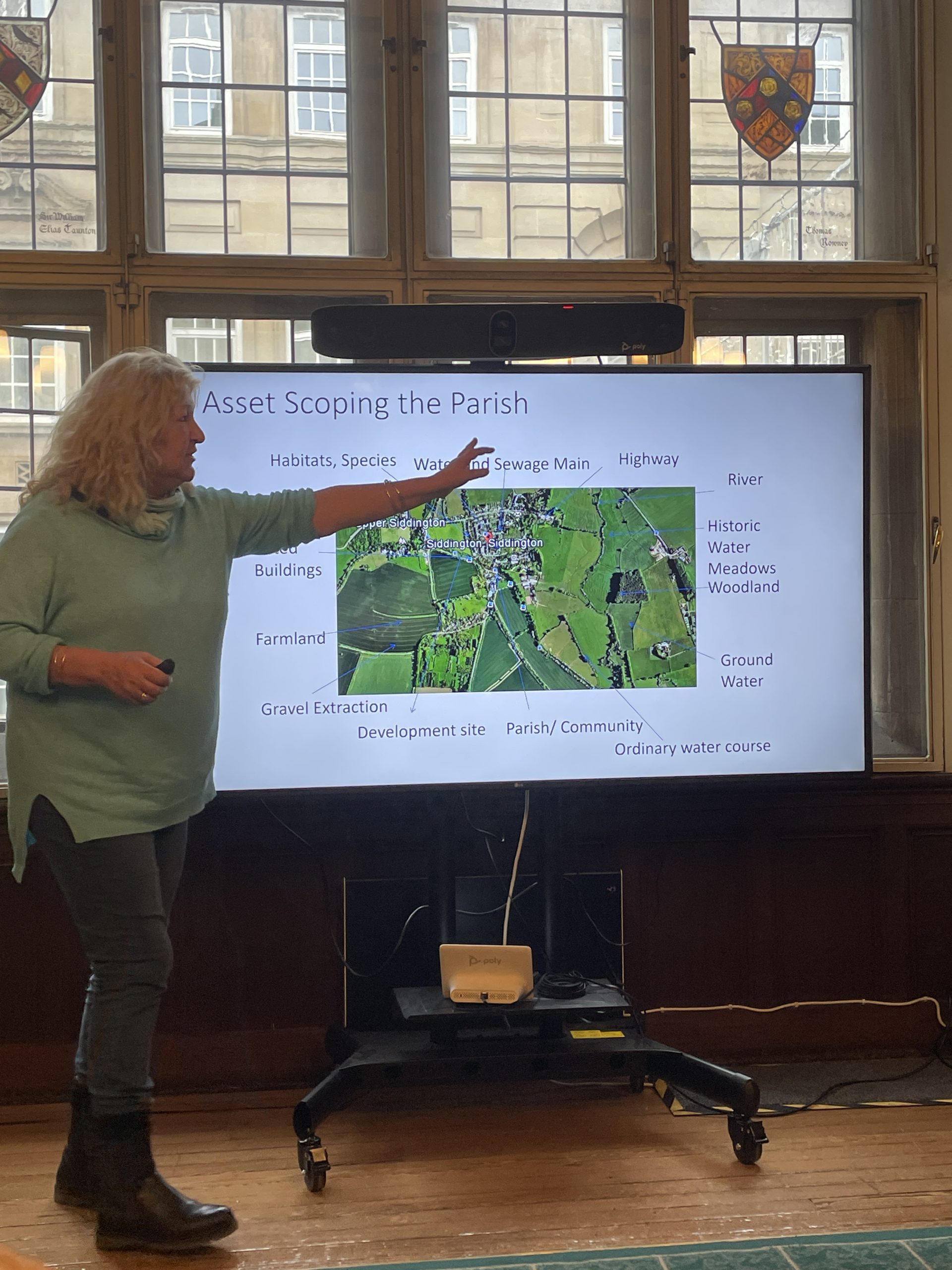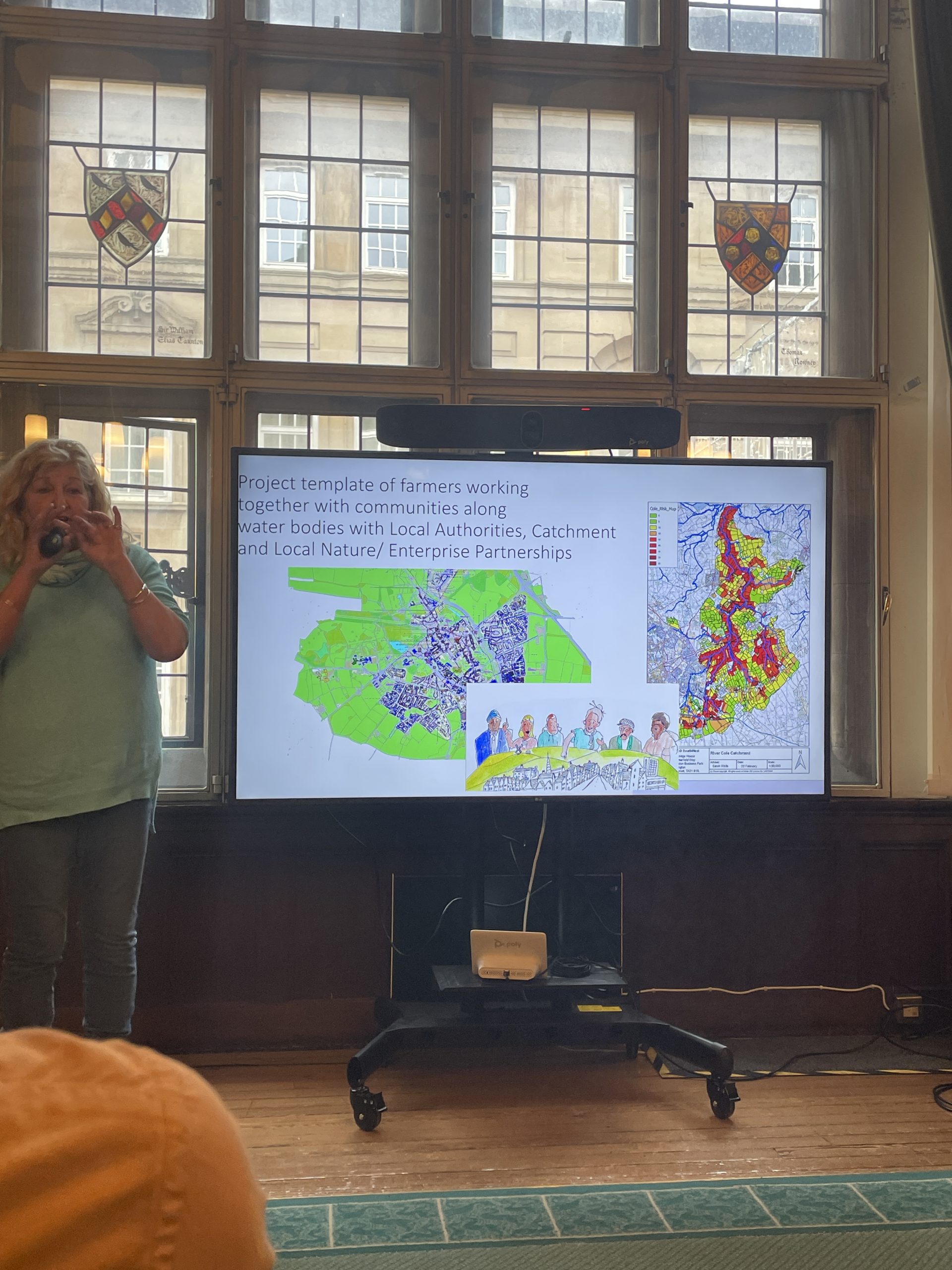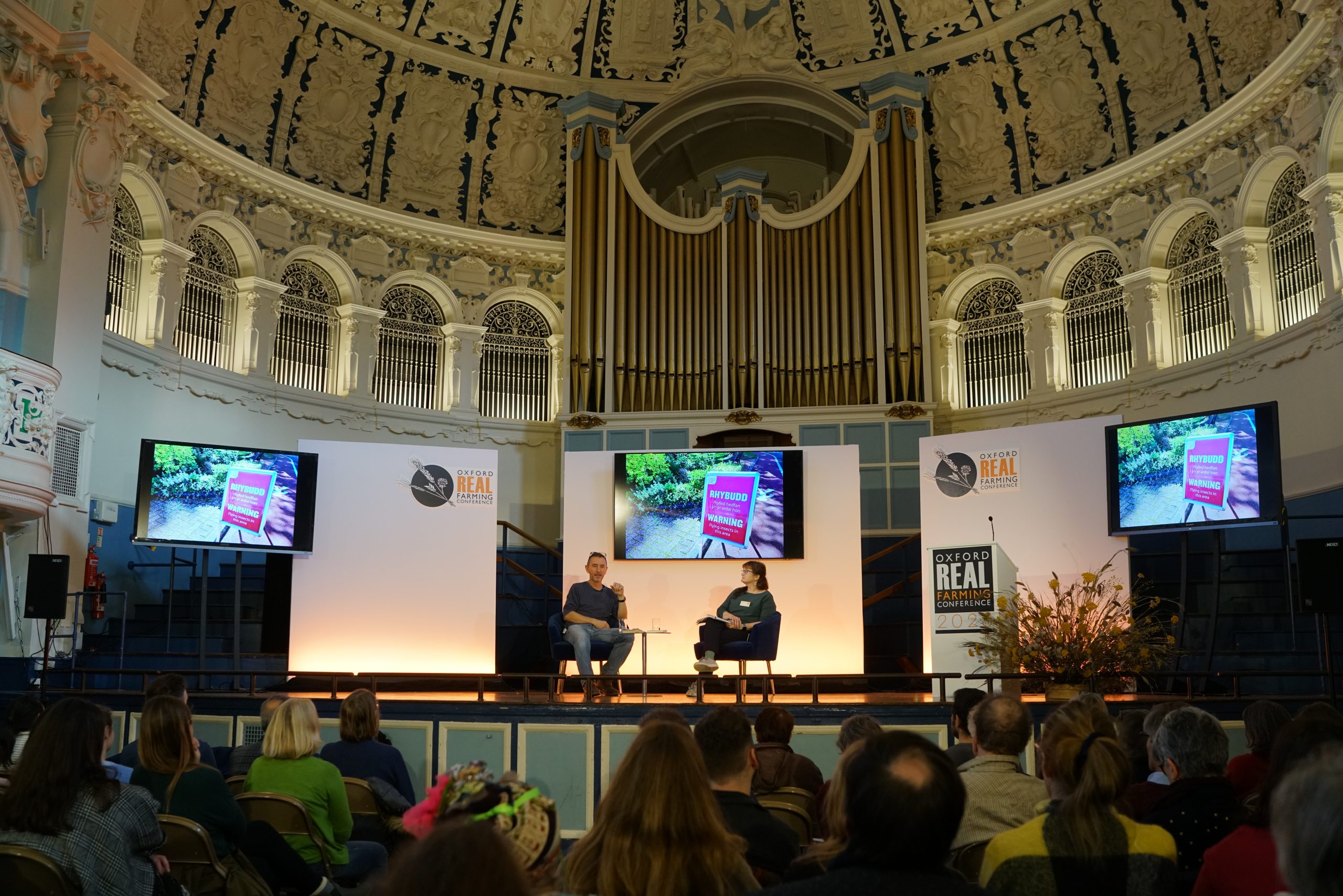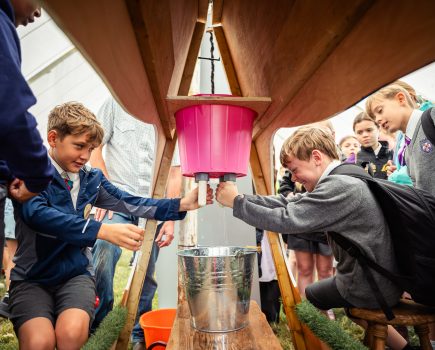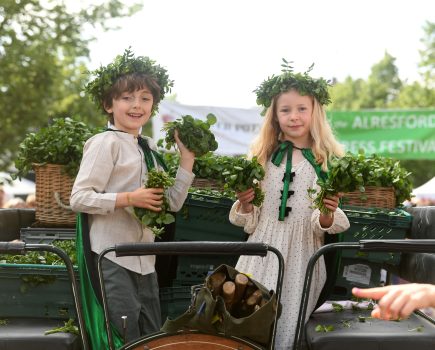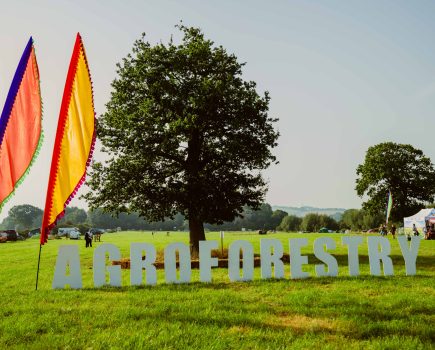Nigel Akehurst reports from the Oxford Real Farming Conference.
The 14th Oxford Real Farming Conference (ORFC), held in Oxford from 4-6 January, hit new heights as the largest agro-ecological gathering in the world, boasting 1,800 in-person delegates and a further 2,500 online.
For anyone unfamiliar with ORFC, the event was born out of protest in 2010 as a grass roots antidote to the original ‘establishment’ Oxford Farming Conference (OFC) which has been taking place since 1936. It now boasts more participants than the OFC.
ORFC has grown substantially since its inception in a room of 50 people above a pub back in 2010, and the main hub now is Oxford Town Hall, where many of the larger sessions are run. Inspiring speakers such as Indian activist Vandana Shiva drew large crowds to the venue, which also saw more practical sessions on herbal leys.
Part of the beauty of ORFC is the diversity of topics, and the three-day event now includes a programme of more than 70 sessions (with over 100 speakers) and has expanded to other nearby buildings. The event is run by the Real Farming Trust but is supported by other organisations including the Sustainable Food Trust, the Land Workers’ Alliance, Pasture For Life (formerly the Pasture-Fed Livestock Association), the Nature Friendly Farming Network and the Soil Association to name a few.
A common thread running through the conference this year was the obvious but rarely recognised connection between what we eat, how we farm and our health. With government unable or unwilling to take the bold decisions needed to help change our food system, many of the speakers called for us all (farmers, climate activists and eaters) to work together to change the system from the ground up.
I attended the event on 5 and 6 January, when most of the in-person sessions took place. At the opening plenary the Shumei Taiko ensemble (farmers from Japan, the US and the UK) opened the event with a powerful drumming session, before handing over to a few of the organisers who helped bring the event together. Standing in a hall full of young farmers and food activists, the event felt more like a festival than a conference.
As the plenary finished, everyone made their way to their first session of the day. I attended a fascinating workshop entitled Farming and community advice and support for our landscape, climate and nature recovery facilitated by Teresa Meadows (BASIS) and Jenny Phelps (FWAG South West). They highlighted the vital role of facilitation groups and their officers to bring together different actors in the community (farmers, landowners, local people, water companies, ecologists, investors etc.) to deliver projects that enhance natural capital and help build climate resilience.
Another talk in the main hall titled Is there an insect apocalypse? with Dave Goulson (University of Sussex and author) argued the case for better policies to stem the tide of insect declines seen in the past decades and set out what we as farmers can do to stem further declines and help species like the dung beetle recover (in that case by using fewer wormers).
Later in the afternoon I attended a session on funding titled Funding regeneration: how unconventional financing models can support food and farming businesses, at which a panel of speakers spoke about their experience in raising funds through impact investment and why there isn’t sufficient private capital being invested in food and farming – and why this needs, and is beginning, to change.
One emerging solution is the arrival of more ‘patient capital’ from aligned investors who are not looking for a quick exit. Another option for community run organisations looking to transform the food system are loans for enlightened agriculture programme (LEAP) run by the Real Farming Trust. LEAP can provide up to £100,000 (part loan, part grant) to small enterprises with very low rates of interest and also offers mentorship.
I then managed to catch the last half an hour of an all-female panel session titled The power of food to heal minds, bodies, communities and our land chaired by GP Sally Bell. The panel highlighted the importance of real food to restore our physical and mental health (check out Tim Spector’s book Food for Life). Sadly, in our present climate, food often polarises, confuses and perpetuates chronic illness. Luckily there is much we can all do to work together to change this.
After some nutritious food, a few beers and a good night’s rest, I was back in the town hall for day two. Running a bit late, I didn’t make it into my first-choice session on DIY soil monitoring, but I did find a space in What price for saving nature, an illuminating session focusing on how nature is being financialised.
Speakers Ian Rappel (College for Real Farming and Food Culture) and Jutta Kill (biologist and journalist) highlighted the fact that mainstream environmentalism is turning towards nature commodification as the solution.
A carbon credits ‘gold rush’ is underway, with one farmer in the audience explaining how she had been backed into a corner by her landlord and forced to sign up to pay her rent. Several other farmers in the audience had noticed neighbouring land in Scotland and in Exmoor being bought up at hugely inflated rates by private equity companies looking to take advantage of carbon credits.
Another audience member pointed out the flawed concept of net zero, where large fossil fuel companies offset their carbon by buying carbon credits. What he suggested we should be doing was moving towards a fossil fuel-free economy now by investing in renewables and producing agro-ecological food, not allowing energy companies to carbon offset and continue to pollute our environment by burning more fossil fuels.
In need of something a little different, I went to a session relating to cattle entitled
Cattle as translators of the land with Marthe Kiley-Worthington (farmer, ethologist and ecologist). I learnt that an ethologist is someone who studies the behaviour of animals and was fascinated to hear the experience of Samar Khan, a philosopher and artist who spent a considerable amount of time observing cattle in a dairy in the Netherlands and more recently on a farm in Hertfordshire. His observations as a non-farmer were interesting, as were other stories from members of the audience, serving as a reminder of how important it is to get to know your livestock.
My last in-person session of the day was titled Crafting the narrative to transform our food and farming systems, with a panel of expert speakers that included Poppy Okotcha (ex-model and ecological food grower), Joya Berrow (storyteller, film maker and photographer) and Ben Andrews (organic farmer from Herefordshire).
I found Ben Andrews’ (@bentheoandrews on Instagram) insights into his experience of storytelling and his use of social media (he has an Instagram following of over 70,000) to connect with a wide audience inspiring, especially his role in celebrating LGBTQ+ people in farming.
Overall, I left ORFC feeling fired up and enthused for the farming year ahead. If you’ve enjoyed reading about the conference, some sessions will be available via YouTube (google ORFC YouTube), though it may take a few weeks for this year’s content to be uploaded).

